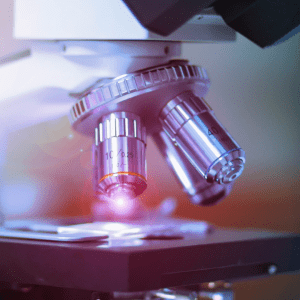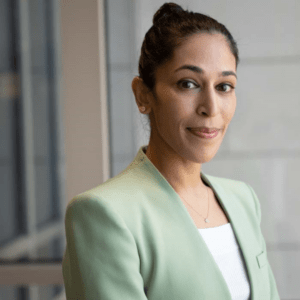
The ABTA is excited to announce Matthew Zachary as the 2024 National Conference keynote speaker. Matthew is a 28-year brain cancer survivor praised for leading a social movement for adolescents and young adults (AYA) with cancer.
A classically trained concert pianist, Matthew’s plans to pursue a career in film composition were upended by a medulloblastoma diagnosis at the age of 21.
Struck by isolation and a lack of resources during recovery, Matthew founded the award-winning nonprofit Stupid Cancer in 2007, the world’s largest AYA cancer community dedicated to empowering young people with support and connection.
Through Matthew hosting “The Stupid Cancer Show,” the first healthcare talk radio show, his award-winning documentary series, “The Cancer Mavericks: A History of Survivorship,” and his Top-10 award-winning healthcare podcast, “Out of Patients,” Matthew is considered one of the most influential talents and visionary voices for the AYA community.
When Matthew’s not busy with his 14-year-old twins, he’s building an army of patient advocates to force changes within our broken healthcare system.
Read about Matthew’s journey from surviving at 21 to becoming a trailblazer in AYA patient advocacy.
As a brain tumor survivor of nearly 30 years, what was your experience being diagnosed at 21 years old?
I was getting ready for grad school to pursue a degree in performing arts. Maybe this was unique to me, but as a pianist, my main symptom was not being able to play with my left hand. I couldn’t wiggle my fingers back and forth.
Leading up to my actual diagnosis, doctors thought I had Epstein-Barr virus, carpal tunnel, and many ischemic incidents. They once told me, “Just put your backpack on the other shoulder and your hand should stop being numb.”
So, when they finally said there’s something in your brain, I thought, “Thank God, there’s something there. I’m not crazy.”
I was diagnosed with medulloblastoma, and honestly, I was so young that I was in denial. I didn’t think anything was bad, like, “Oh great, brain cancer. Fantastic. Surgery? Cool. Cut my head open.” It was that level of absolute invincibility.

After surgery, what happened with your piano abilities during treatment and recovery?
They took out my tumor, and bam, I could play piano again. But I hadn’t used my hand in like six months, so I couldn’t really play.
My friends went off to grad schools, and the flowers eventually stopped showing up at the house. So, I’m in my bedroom just burnt out, exhausted, and I couldn’t walk… the worst of the worst. It’s kind of how I felt. Radiation nearly killed me. I said no to chemotherapy. My saying about it was, “I lost my life, but I didn’t die.”
All I wanted to do was just play piano, so I did. Every day, I played for like an hour and slept the other 23 hours. I wasn’t eating or drinking. I lost 110 pounds in three months of just water weight and everything. I was a shell of a human.
It took me five years, but music was the only anchor I had left. So I kept writing music, composing, and putting the thoughts down on paper. I actually produced two albums in the ‘90s, back when you could do that. And just to be able to hold them up in my hands and say, “This is what cancer tried to take away from me,” was a magical core memory for me.

What were the support resources like for you during recovery?
Back then, it felt like there was nothing in terms of resources or communications without the internet. But at the time, I was relieved to finally get my diagnosis. The last thing I thought about was, “Where’s another 20-something with brain cancer?”
It seemed like everyone’s grandfather died of brain cancer, and of course, they were 80 or 90. Everyone knows someone who knows someone whose grandparents died from cancer.
I did happen to stumble upon the ABTA National Conference in ‘97 when I went back to NYU. It was my first look at all these people getting together for brain cancer, but at the time, they were all in their 80’s. It never occurred to me that, “Could there be a room full of people like me instead?”
It wasn’t until years later that I thought it’d be nice to talk to somebody who went through what I went through.
What challenges do AYA cancer and brain tumor patients face?
It sucks to be 20 with no problems, right? And then you’re thrust into a store that you didn’t prepare to be in—there’s no greeter, there’s no directory.
The shelves are lined with white products with no labels on them, you don’t know what’s right for you, and there’s no one shepherding you in those critical first few weeks. I had maybe a month between, “You have cancer” and “here’s a surgery to fix it up.”
That’s a decent amount of time to be absolutely riddled with panic, and people aren’t usually ready to receive cogent information in the panic window.
So, when your life maybe calms down a little bit and you finally have some stability, that’s when most people have the mental capacity to consider, “Oh, I didn’t think fertility, or how do I talk to my employer, or what do I say to my kids?”
One argument AYA patients face is, “Aren’t you happy enough just being alive?” Like no, some people want children and to be able to live a normal life.
They want to be able to find information online and access mental health resources without getting a million irrelevant Google results. They often can’t get a second opinion or find a clinical trial because of limited access in rural America and the noise of search engines.


When you started Stupid Cancer and spearheaded national advocacy efforts, how did you address some of these obstacles?
I consider the young adult cancer movement as the last great patient revolution in the country. I mean, you got to love or hate the Affordable Care Act, but we helped get it passed, and it changed pre-existing conditions, period. That was the single most important thing. We don’t want to be judged, denied care, or lose insurance coverage because of something that happened to us, and we didn’t ask for it.
Another thing we fought for was fertility. We fought for a path to parenthood, and that took 15 years. Still, younger people with cancer, even rare diseases like Multiple Sclerosis (MS), aren’t disclosed that the treatment they have to go on will render them infertile. And if being a mom or dad is important to you, we pushed for them to get the knowledge and ability to preserve their potential to become a parent one day in the future.
We’re going to care about the person, too? Yeah, we were going to do that. Survivorship was the backbone of everything Stupid Cancer built on top of with an organization that basically invented that concept in 1986, called the National Coalition for Cancer Survivorship—the oldest survivor led advocate policy group in the country.
Culturally, we are more aware of everything. Quality of life, mental health, lifestyle, gender identity—whatever life you want to live is valuable. The outcome is not just what a medical establishment would like to see; it’s a hybrid of what you’d like to see with them.
And if there’s one upside to social media, at least in my old brain, it has brought people together who are like-minded and want to help, and that’s progress.
What kind of advances do you hope to see in the next few years in cancer research and treatment?
This speaks to the Wayne Gretzky quote, “Skate to where the puck is going to be, not to where it’s been.” And what are we going to look like as a society in 2030, per se, is crazy because that’s six years away. But retail cancer prevention—that’s where we’re headed.
The question is, “Are consumers ready for that?” Like a colon cancer test that doesn’t require a doctor’s prescription… So, imagine if you could go to a Walgreens or a Walmart and take a quick test, get a report back in like five minutes that you have esophageal precancer, or that you’re predisposed to cancer because of a BRCA mutation.
Having a better understanding of your genetic profile risk, even at a high school level, could help you make some changes in your life at that time, or just have knowledge that you’re at risk of cancer.
I’m not as versed about brain cancer and whether it will be possible to detect it through a test like this. But retail cancer prevention for all types of cancer is where we’re headed, and that gives me hope.

Now that you’re back in the direct patient advocacy space, what are you up to nowadays?
My 14-year-old twins are starting high school in September, which is an insane blessing and just really weird that they’re high school students.
Besides parenthood, I was working on a book, and that fell apart. So, I’m re-working on the same book, part two, second try.
I produced something in 2021 called “The Cancer Mavericks,” which is an eight-part narrative audio history series on the Americans who fought back on behalf of everyone else for healthcare policy. It’s a story about real heroes, and a tearjerker. I’m working on several other documentary projects.
My podcast, “Out of Patients,” has been on hiatus. I’ll be relaunching it in September and have been planning for that. I’m doing interesting projects with pharmaceutical companies and nonprofit organizations, like the ABTA, to get back to my roots in brain cancer. I spent 27 years in general patient advocacy, but I’m really rooted in what my diagnosis was.
I’m still playing and performing piano, and my daughter is taking piano lessons now, too. Never stay bored!
We’re excited to have you be the ABTA 2024 National Conference keynote speaker. What are a couple takeaways that patient and caregiver attendees can expect?
I’m going to look at progress, from where we’ve come and what still needs to happen. Back when I was diagnosed, there were four drugs. Now there are 40,000 drugs—a better problem to have. There were six nonprofits, and now there are 40 million. So, we have better problems today. It’s just about, “How do we sort through the jungle that used to not be there?”
And then, just emphasizing that quality and quantity of life are yours to decide—it’s that straightforward. You have to make the life you deserve with the cards you’ve been dealt. I’ve learned to surrender to things I can’t control. Do we have permission to be pissed? Yes. You are certainly allowed to own your anger and your shock and your grief. But it’s not about why, it’s about where you go.
Hear Matthew share his keynote address at the 2024 National Conference on Friday, September 6. The conference will be held at the Renaissance Schaumburg Convention Center Hotel and streamed virtually. Make plans to join us for the conference and register today!



















